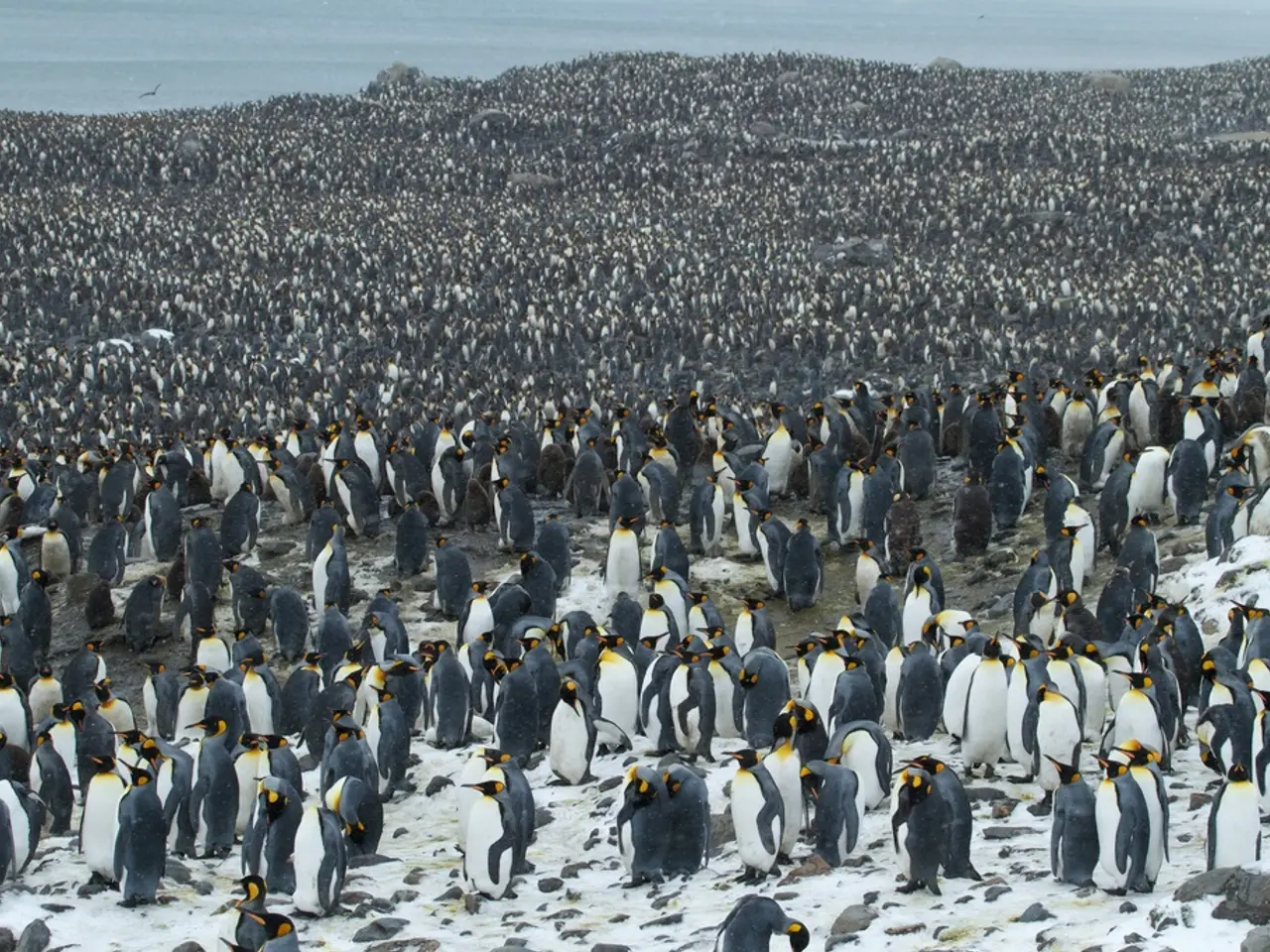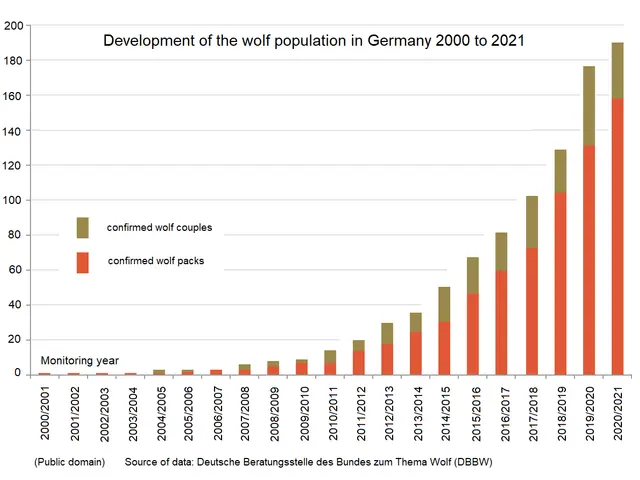Annual Penguin Journey: Insights on Climate Change Drawing from Penguin Migrations
In the vast, icy expanse of the Antarctic, a silent yet profound transformation is underway. As oceans warm and currents shift, the location and abundance of penguins' favourite foods are in flux, forcing these iconic creatures to travel farther and dive deeper.
This migration, a seasonal dance driven by environmental conditions, is offering scientists an unprecedented window into the effects of global warming. Subtle shifts in migration patterns can have devastating consequences, and current observations indicate that penguin migration patterns show northward shifts during winter, with all three studied Antarctic species migrating away from the continent and returning at spring for breeding.
Climate change is influencing the timing and extent of these movements. Warming temperatures and changing sea ice conditions are altering habitat availability and food resources, impacting penguin migration and population trends. Some penguin populations may shift breeding or wintering grounds due to changes in sea ice and prey distribution, although details can vary by species and region.
The story of penguin evolution and distribution is a testament to their remarkable adaptability. Research suggests that penguins evolved and diversified in close response to past climate shifts over millions of years, with temperature declines and ocean circulation shaping historical distribution and speciation. However, contemporary rapid climate warming may again force penguins to adapt or relocate, posing risks due to the speed of current changes.
Local variations in population responses to climate change are evident, with some colonies thriving and others declining depending on habitat changes. Studies of similar Arctic seabirds show that local differences in migration strategies and population trends are linked to climate-driven habitat changes, with some populations declining due to deteriorating conditions, while others increase where habitats remain suitable. This spatial variability likely applies to penguins too, underscoring the complexity of climate change impacts on marine bird migration.
Accurate assessment of migration and ecological shifts depends on accounting for methodological factors like feather wear affecting biomarker readings. Novel research on penguin feathers indicates that migration studies using stable isotopes and mercury concentrations must carefully consider feather wear and age, as these factors can affect data interpretation on migration and ecology.
In summary, climate change is causing shifts in penguin migration and population status, with broad implications for their survival and the Antarctic ecosystem. Penguins have become unlikely ambassadors in the fight against climate change, inspiring global conversations and movements to protect the environment. Despite the challenges, penguins have shown remarkable adaptability, changing their nesting sites, altering their diets, and shifting their migration timing.
However, their adaptations may not be enough if climate change continues unchecked. Penguins are living barometers of planetary health, with their migrations, breeding success, and survival rates reflecting conditions in our oceans and climate. On World Penguin Day, the message is that penguin migrations are an urgent signal of a changing world, and we should act before the ice beneath us begins to melt.
- The shifts in penguin migration patterns, driven by climate change, provide researchers with a unique opportunity to study the effects of global warming on environmental-science and health-and-wellness, as these subtle changes can have severe consequences.
- In addition to impacting the penguins' habitat and food resources, climate change may also affect their mental-health, as changes in sea ice and prey distribution could potentially lead to increased stress or difficulty in finding essential resources.
- As space exploration progresses, it would be interesting to conduct research on whether the effects of climate change observed in penguins might have similar influences on other ecosystems on Earth and potentially even within the universe as we learn more about other environments.
- On World Penguin Day, it is crucial to reflect on the message these amazing creatures are sending—that visible changes in their migration patterns and daily lives are indicative of the urgent need to address climate change, not just for the survival of penguins but for the health of our planet as a whole.




